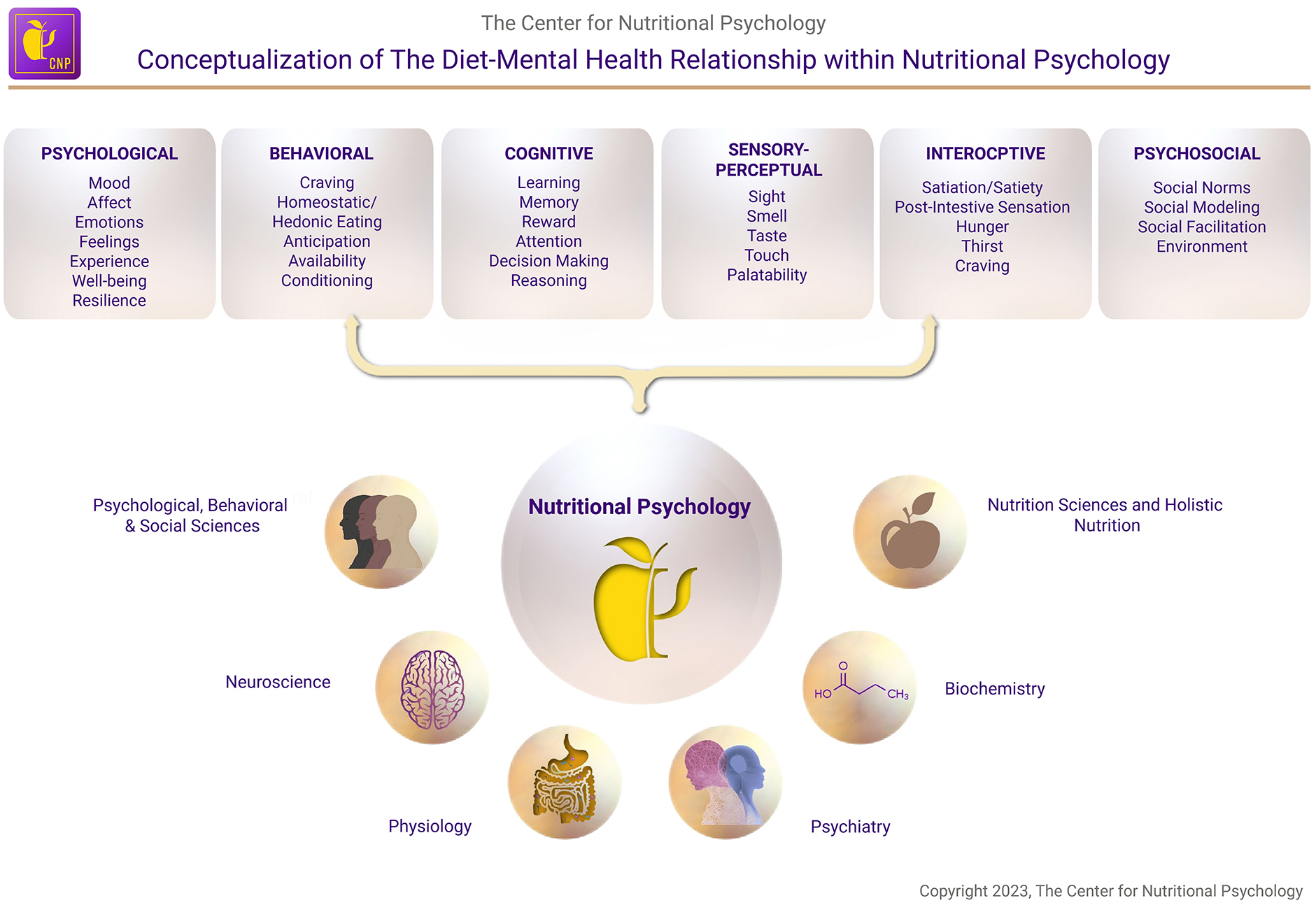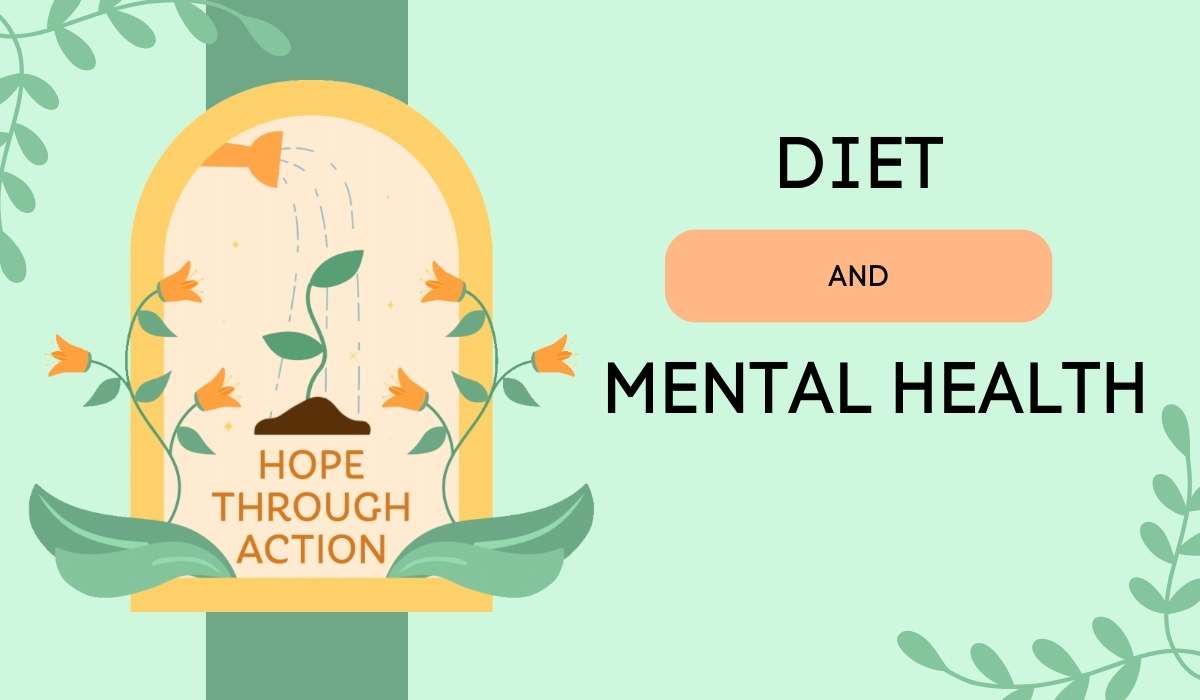The connection between diet and mental health has been gaining increased attention in recent years as research continues to uncover the profound impact that nutrition has on our overall well-being.
One major area of focus is the link between diet and mental well-being, as studies have shown that certain nutrients can affect neurotransmitter levels in the brain and influence mood and cognition.
Omega-3 fatty acids, for example, have been found to play a crucial role in mental health, with research suggesting that low levels of these essential fats are associated with an increased risk of depression and other mental health conditions.
In addition to omega-3 fatty acids, vitamins and minerals such as B vitamins, zinc, and magnesium are also important for brain function and can contribute to mental well-being.
Another essential aspect of the diet-mental health connection is gut health. The gut-brain connection has been widely recognized, with research indicating that the state of our gut microbiome can impact our mental health.
Maintaining a healthy gut microbiome through a balanced diet rich in fiber, probiotics, and prebiotics is crucial for optimal mental well-being.
Certain foods have also been found to support mental health due to their antioxidant properties. Antioxidants help protect the brain from oxidative stress and inflammation, which can contribute to mental health disorders.
Examples of antioxidant-rich foods include berries, dark chocolate, and green leafy vegetables.
Whole grains and lean proteins are also important for mood and well-being as they provide a steady release of energy and essential amino acids, which are the building blocks of neurotransmitters.
To incorporate a brain-boosting diet into your lifestyle, it is advisable to include a variety of nutrient-dense foods, limit processed foods and refined sugars, and practice mindful eating.
Meal planning can also be a helpful strategy to ensure that your diet is well-balanced and supports mental well-being.
In conclusion, the relationship between diet and mental health is a significant one, with nutrition playing a crucial role in shaping our well-being. By prioritizing essential nutrients, promoting gut health, and consuming foods that support mental health, we can take proactive steps to enhance our overall well-being.
The Link Between Diet and Mental Health
The connection between diet and mental health is undeniable, with research showing that certain nutrients in our diet can significantly impact our well-being. Omega-3 fatty acids play a crucial role in mental health, while vitamins and minerals like B vitamins, zinc, and magnesium are essential for brain function. Additionally, our gut health plays a significant role in mental well-being, as the state of our gut microbiome can affect our mental health. By incorporating nutrient-dense foods, promoting a healthy gut, and consuming antioxidant-rich foods, we can support our mental health and overall well-being.
The connection between nutrition and mental well-being

Nutrition plays a crucial role in maintaining our mental well-being. The food we consume provides the essential nutrients that our brain needs to function optimally. A healthy and balanced diet can support brain health, improve mood, and reduce the risk of mental health disorders. On the other hand, a poor diet lacking in necessary nutrients can negatively impact our mental health and contribute to the development of mental illnesses. Making conscious choices about our diet and incorporating nutrient-rich foods can greatly benefit our mental well-being.
Impact of diet on mood and mental health
A healthy and balanced diet has a direct impact on mood and mental health. Consuming nutrient-rich foods can boost serotonin levels, which is a neurotransmitter responsible for regulating mood. Incorporating foods like fatty fish, fruits and vegetables, whole grains, and nuts can support mental well-being and reduce the risk of mental health disorders. On the other hand, a diet high in processed foods, sugar, and unhealthy fats can negatively affect mood and increase the likelihood of developing mental illnesses. Making conscious choices about diet is crucial for maintaining good mental health.
Essential Nutrients for Brain Health

Essential Nutrients for Brain Health
To support optimal brain health, it is important to consume a diet rich in essential nutrients. Omega-3 fatty acids, found in fatty fish like salmon and walnuts, can enhance memory and cognitive function. Additionally, vitamins such as B12, folate, and vitamin D play a crucial role in brain health and can be obtained from sources like fortified cereals, leafy greens, and sunlight. Including these nutrients in your diet can improve brain function and promote overall mental well-being.
Omega-3 fatty acids and their role in mental well-being
Omega-3 fatty acids, such as those found in fatty fish like salmon and walnuts, play a crucial role in promoting mental well-being. These essential nutrients have been shown to enhance memory and cognitive function, making them vital for optimal brain health. Adding omega-3 rich foods to your diet can improve brain function and support overall mental well-being. Consider incorporating sources of omega-3 fatty acids into your meals to reap these benefits.
Vitamins and minerals essential for brain function
Certain vitamins and minerals are essential for optimal brain function. For example, vitamin B12 is crucial for nerve function and the production of red blood cells, while magnesium plays a role in regulating neurotransmitters. Additionally, iron helps transport oxygen to the brain, and vitamin D supports overall cognitive function. Including a variety of nutrient-rich foods in your diet, such as leafy greens, eggs, nuts, and fortified milk products, can ensure you’re getting these important vitamins and minerals for brain health.
Gut Health and Mental Well-Being
The gut-brain connection plays a crucial role in mental health, as the gut communicates with the brain through the vagus nerve. To support mental well-being, it is important to maintain a healthy gut microbiome. This can be achieved by consuming a diverse range of fiber-rich foods, such as fruits, vegetables, and whole grains. Additionally, probiotics found in fermented foods, like yogurt and sauerkraut, can help promote a healthy gut flora. Taking care of your gut health can have a positive impact on your overall mental well-being.
The gut-brain connection and its impact on mental health

The gut-brain connection plays a crucial role in mental health, as the gut communicates with the brain through the vagus nerve. To support mental well-being, it is important to maintain a healthy gut microbiome. This can be achieved by consuming a diverse range of fiber-rich foods, such as fruits, vegetables, and whole grains. Additionally, probiotics found in fermented foods, like yogurt and sauerkraut, can help promote a healthy gut flora. Taking care of your gut health can have a positive impact on your overall mental well-being.
Importance of a healthy gut microbiome for mental well-being
A healthy gut microbiome is crucial for maintaining mental well-being as it influences neurotransmitter production and regulates inflammation. To support a healthy gut, focus on consuming fiber-rich foods like fruits, vegetables, and whole grains. Additionally, incorporating probiotics found in fermented foods can promote a diverse and beneficial gut flora. Prioritizing gut health can have a positive impact on mental health and overall well-being.
Foods That Support Mental Health
Foods that support mental health include those rich in antioxidants, such as berries and dark chocolate, which can help reduce inflammation and oxidative stress in the brain. Additionally, incorporating whole grains, lean proteins, and foods high in omega-3 fatty acids, like salmon and walnuts, can provide essential nutrients for brain health. Aim to include these foods in your diet to support mental well-being.
Foods rich in antioxidants and their benefits for mental health
Foods rich in antioxidants, such as berries and dark chocolate, have numerous benefits for mental health. These antioxidants help reduce inflammation and oxidative stress in the brain, which can improve overall brain function and support mental well-being. Incorporating these foods into your diet can provide essential nutrients and promote a healthy mind. Consider adding berries and dark chocolate to your meals or snacks to reap the mental health benefits they offer.
Impact of whole grains and lean proteins on mood and well-being
Incorporating whole grains and lean proteins into your diet can have a positive impact on your mood and overall well-being. Whole grains like quinoa and brown rice contain essential nutrients that support brain function and stabilize blood sugar levels, leading to improved energy and mood. Lean proteins such as chicken, fish, and tofu provide amino acids that are necessary for the production of neurotransmitters, the brain chemicals that regulate mood. Including these foods in your meals can help enhance your mental health and promote a positive outlook
Diet Strategies for a Healthy Mind
To support a healthy mind, it’s important to incorporate specific diet strategies into your lifestyle. Here are some actionable tips you can follow:
1. Include plenty of fruits and vegetables in your meals for their beneficial antioxidants.
2. Eat foods rich in omega-3 fatty acids, such as salmon or flaxseeds, to support brain health.
3. Opt for whole grains like quinoa and brown rice instead of refined grains for stable energy levels.
4. Choose lean proteins like chicken, fish, and tofu to provide the necessary amino acids for neurotransmitter production.
5. Stay hydrated by drinking enough water throughout the day to support optimal brain function.
By implementing these diet strategies, you can nourish your mind and support your overall mental well-being.
Tips for incorporating a brain-boosting diet into your lifestyle
Include a variety of fruits and vegetables in your meals to benefit from their antioxidants.
Incorporate omega-3 fatty acids into your diet by consuming foods like salmon or flaxseeds.
Opt for whole grains such as quinoa and brown rice for sustained energy levels.
Choose lean proteins like chicken, fish, and tofu to support neurotransmitter production.
Stay hydrated by drinking enough water throughout the day for optimal brain function.
Meal planning for mental well-being

Meal planning plays a crucial role in promoting mental well-being. By carefully selecting and organizing your meals, you can ensure that you are nourishing your body and brain with the right nutrients. Start by creating a weekly meal plan that includes a variety of fruits, vegetables, whole grains, lean proteins, and healthy fats. This will provide you with a well-rounded diet that supports brain health. Additionally, consider prepping your meals ahead of time to make healthy choices easier throughout the week. Stick to your meal plan and make adjustments as needed to maintain a balanced and nutritious diet for optimal mental well-being.
Conclusion
To conclude, the relationship between diet and mental health is undeniable. By fueling our bodies with the right nutrients, we can support our brain health and overall well-being. Essential nutrients like omega-3 fatty acids and vitamins play a crucial role in mental well-being. Additionally, maintaining a healthy gut microbiome can have a positive impact on our mental health. Incorporating foods rich in antioxidants, whole grains, and lean proteins can also support our mood and well-being. By following a brain-boosting diet and practicing meal planning, we can prioritize our mental well-being and nurture a healthy mind.
Summary of the relationship between diet and mental health

A healthy diet plays a crucial role in supporting mental well-being. Nutrients like omega-3 fatty acids and vitamins are important for brain health. Maintaining a healthy gut microbiome also has a positive impact on mental health. Foods rich in antioxidants, whole grains, and lean proteins support mood and well-being. To prioritize mental well-being, incorporate a brain-boosting diet and practice meal planning. Prioritizing nutrition can nurture a healthy mind and support overall well-being.
Recommendations for a balanced diet to support overall well-being
To support overall well-being, it is recommended to focus on a balanced diet. Incorporate a variety of fruits, vegetables, whole grains, lean proteins, and healthy fats into your meals. Limit processed foods, sugary drinks, and excessive salt intake. Stay hydrated by drinking plenty of water. Additionally, portion control and mindful eating can help maintain a healthy weight and prevent overeating. Regular physical activity should also be a part of a holistic approach to well-being. Prioritizing these dietary recommendations can contribute to better physical and mental health.
For More Blogs visit Aerns

